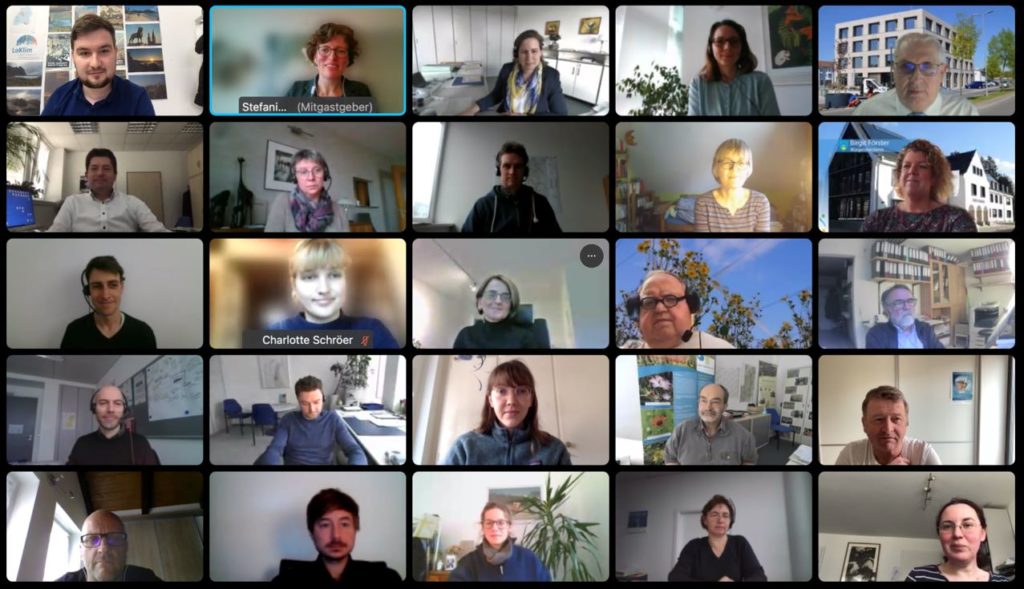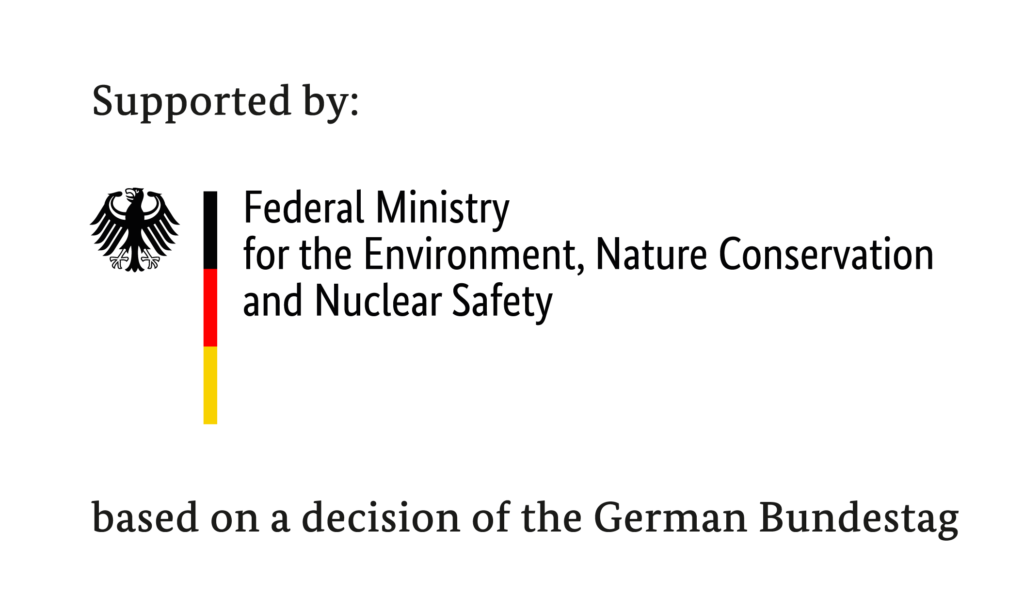Enzkreis: Actively consider climate change adaptation in current planning processes
The discussion of strategies and goals for adapting to the consequences of climate change was the focus of the second LoKlim workshop in the Enzkreis on Monday, February 21. During the online event, more than 40 stakeholders from the district administration, the district council, the municipalities as well as experts from the fields of nature conservation and environmental protection, economic development, agriculture and frost management, transport, energy and climate protection as well as health and social affairs exchanged strategies, goals and measures for the development of a climate robust future in the Enzkreis.
Dr. Neidhard, first state official, welcomed the participants and pointed out the importance of the topic of climate change adaptation for forward-looking planning in the district. The circle of participants in the workshop was also expanded to include the areas of health and social affairs for the development of strategies and measures.
Stefanie Lorenz, project coordinator LoKlim, welcomed those present and explained the goals: the visions for a climate robust future of the Enzkreis collected at the first workshop will be further developed in the second workshop and transferred into concrete strategies and measures. To introduce the LoKlim project, she showed the TV report made about the project as part of the nomination by 3Sat and explained the aspects of climate change adaptation as a broad cross-cutting issue.

The second workshop focused on the development of a strategy with goals and measures for a climate robust Enzkreis. Dennis Fila, PhD student in the LoKlim project, explained the guiding principles of climate adaptation developed from the results of the first workshop. For the district, the support and information of the district municipalities as well as the consideration of the changed climatic initial conditions in the current planning is central. In the case of the district municipalities, the aim is, on the one hand, to protect the population from the unavoidable effects of climate change and, on the other hand, to increase the quality of life through progressive climate adaptation measures in all relevant areas. Separate guidelines, strategies and measures were formulated for each of the following fields of action: transport, business and industry, urban and regional planning, health and social affairs, agriculture and forestry, water, tourism, and nature conservation and biodiversity. These elaborations were discussed in two rounds with four small groups each.
The first round started with four groups: urban and spatial planning, health and social affairs, water and tourism. In the urban and spatial planning group, the participants agreed that the focus here should be on nature-based rather than technical adaptation measures. More green in urban areas has many other positive aspects besides the cooling effect for the quality of stay, air pollution control and rainwater retention. Here, the desilting of areas, increased greening of facades and the increase of water storage capacity were also discussed. In the second group on health and social issues, participants advocated for an integrated approach to the topic, looking at nutrition and mobility behavior in addition to heat prevention. Critical infrastructure should include connecting housing for refugees in addition to schools, hospitals, nursing homes and kindergartens. The water group discussed the need for increased on-site water storage. In the Enzkreis, direct infiltration on the land is often not possible, but drainage via ditches or infiltration systems is. In the exchange, the creation of small rainwater-fed watering holes, known as grumps, was suggested. The number of grumpen has decreased very much in recent years due to drought, which has a negative impact on amphibians. Overall, the population should be encouraged to be sensitive to water resources, especially in the summer months. In the fourth group on tourism, the development of the Enz for bathing was a topic. It was also suggested that the individual areas should be interlinked, possibly with the involvement of agriculture and forestry.
In the second round of small groups, the topics were: Transportation, Business and Industry, Agriculture and Forestry, and Nature Conservation and Biodiversity. In the transport group, the focus of the discussion was on bicycle traffic and the creation of an attractive, climate-sensitive network of bicycle paths. This includes securing the cycle paths in operation (e.g. branches after storms, clearing in winter), drinking water fountains and workshop facilities on the route as well as secure parking facilities via garages or bicycle boxes. The business and industry group advocated for a skills network to share information and raise awareness of climate change adaptation among businesses. At the same time, consideration should be given to the redevelopment and modernization of existing commercial areas. Participants in the agriculture and forestry group pointed out that the county and municipalities have only advisory functions in the agricultural sector. Overall, water retention and the establishment of hedgerows on agricultural land should be encouraged. Increasing stormwater capture is also an issue in the forest. Public outreach and awareness is needed in both areas. The small group on nature conservation and biodiversity sees the renaturation of watercourses and a focus on wetlands as a way to support the species that suffer most from the effects of climate change. At the same time, measures to unseal parking lots and manage gardens in a more natural way should be addressed here. Overall, the objectives and measures for climate change adaptation in the Enzkreis as well as the mission statement were very much welcomed and seen as desirable for the development of the district.
The third workshop in the project is scheduled for June 22, 2022. Here, the measures discussed in the second workshop are to be prioritized and a strategy for the implementation of climate adaptation in the Enzkreis is to be launched.
